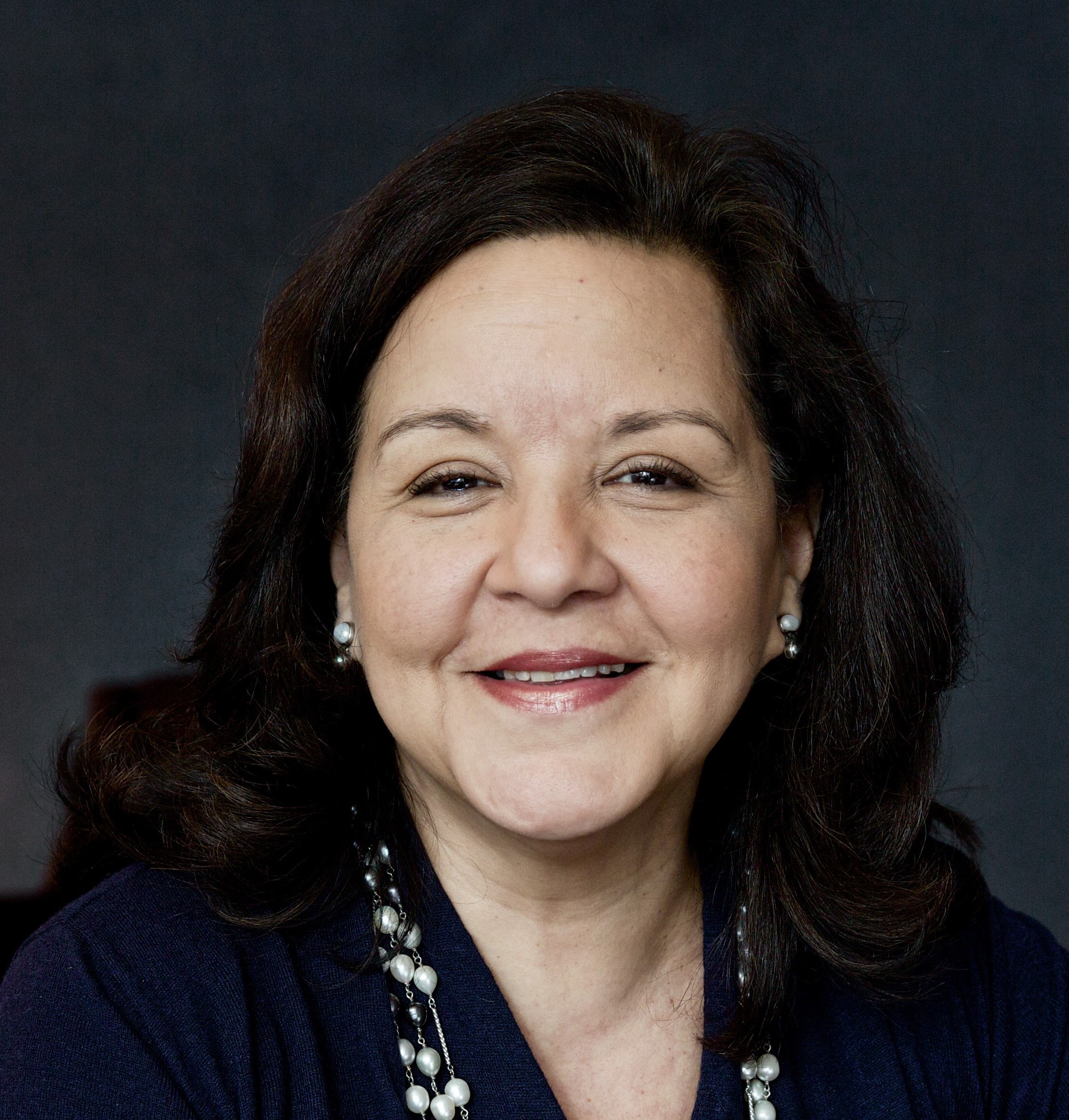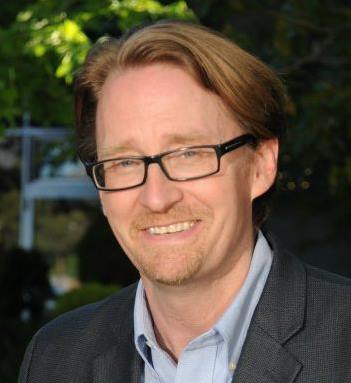
#2 Create serendipity (1/3)
This article is a 3-piece exploration of Ecosystem Building principle #2 Foster Inclusive Conversations and belongs to the 7-part series Ecosystem Building 101. The entire series is developed in Fireside Chats with entrepreneurial ecosystem builders around the world. Read #1 Put entrepreneurs front and center.
This resource guide is no longer available for download. Sign up for Impact Curator to never miss another resource!
In order to move knowledge and resources from the people who have them to the entrepreneurs who need them, we need to create conversations and interactions. In a world that has mostly shifted online, how can we better foster inclusive conversations?
Meet the ecosystem builders
Denisse Rodriguez leads Colmena66 (beehive in Spanish, Puerto Rico is located on the longitude 66). Colmena66 is a program within a 501(c)(3) organization in Puerto Rico and acts as a resource directory for entrepreneurs in Puerto Rico. You met Denisse’s colleague Evy Collazo Muñoz in part 1 of this series.
Anxhela Bruci is a social entrepreneur in Albania. Having survived human smuggling together with her family, Anxhela is building Empowerfull, a social enterprise initiative for the economic empowerment of trafficking survivors. Based in the capital Tirana, Anxhela and her team are working to see survivors as leaders and entrepreneurs rather than just working in low skill jobs.
Jess Edwards is project-based ecosystem builder currently working in South-west Virginia. Jess’ first project was building and launching a co-working space in Buffalo, New York, before she implemented a similar model for a co-working space in Dubai. She followed her time in UAE with a stint in Alaska, where she rolled out a statewide entrepreneurial program before moving to southern Virginia to work on a rural economic ecosystem development project.
Melanie Lenci is the founder of Kick-Ass Entrepreneurs (KAE). Before Covid-19, she hosted Entrepreneur Story Time events in Santa Fe, New Mexico, where the community gathered to hear a different local business owner share her/his story at a different bar or restaurant each month. Entrepreneur Story Time events became an anchor in Santa Fe’s entrepreneurial ecosystem, drawing crowds of 25 to 65 enthusiastic community members, local economic development officials, potential investors and other entrepreneurial support providers. No presentations, no sales, no pitches. Just stories. Melanie continues hosting monthly KAE events on Zoom to help give the community a time and place to connect.
As the Executive Director of an innovation hub focused on entrepreneurship and a previous small business owner, The Generator, Mildred Franco works to develop an inclusive entrepreneurial ecosystem which places entrepreneurs at the center, and one that supports entrepreneurs so that they can build successful and sustainable businesses and organizations. She is based in Pine Bluff, Arkansas.
Larkin Garbee currently lives in West Point, Virginia, just outside of the capital city of Richmond. Larkin invested over a decade’s work into building out what is now an entrepreneurial ecosystem in Richmond, VA, ranging from starting a co-working space to incubators, accelerators and university programs. She is what you would call a full-stack ecosystem builder. She took her expertise to leading Startup Champions Network, a national network of professional ecosystem builders, before she decided to become more involved with her rural community of 3,300 people. Larkin says about herself “I can’t watch things around me not be supported.” Lakin Garbee, forever stirring the pot.
Heather Metcalf is the chief research officer for the Association for Women in Science. Heather’s work focuses on intersectional gender equity in science, technology engineering and mathematics workplaces. The organization runs different programs to help women entrepreneurs across the country build their businesses and commercialize their research. 64% of them are women of color and a third to half are first generation college grads, LGBTQ+ founders, and/or entrepreneurs with disabilities. Heather explains:
It’s not about making women become entrepreneurs who are more like men. It’s about providing them with resources and access to capital.
Eric Renz-Whitmore has been a community builder in various roles through most of his life, bringing people together in ways that make the most of their talents. He’s worked in a variety of economic development roles in New Mexico where he helped lead development of the state’s digital media business community and fostered development of a regional startup community as director of the state’s tech business trade association and in work with the City of Albuquerque’s Economic Development Department. He currently serves as Director of ESHIP Communities for Forward Cities.
Creating serendipity
In a thriving entrepreneurial ecosystem, emerging and established entrepreneurs run into each other without much planning thanks to various events and closely knit networks that create the serendipity needed for such “collisions”. As ecosystem builders, how can we help create this serendipity in less mature ecosystems, in rural regions and within entrepreneurial communities heavily affected by a global pandemic?
Larkin Garbee: “I am very intentional about making meaningful connections.
Whether it’s in-person or virtually, every time I talk to someone new, I think about who they might benefit from knowing or talking to.
Being a super connector is absolutely vital as an entrepreneurial ecosystem builder! Back in Richmond, I used to host events called Startup Journeys during which entrepreneurs shared their journey as a founder. I was always very intentional about the themes for events and the speakers I invited. I wanted to draw in a curious audience without telling them directly what MY intention behind the conversation was.
Being a super connector is absolutely vital as an entrepreneurial ecosystem builder!
Let’s say, for example, I wanted to shed light on the challenges of scaling a business as a BIPOC entrepreneur. The title would not include your typical buzzwords like “diversity” or “underrepresented founder”. I tried to be nuanced to host an open-minded conversation. I also recommend inviting speakers who you know the audience will want to hear from, and throw some lesser known but equally impressive founders into the mix. One of my favorite occasions was to invite founders back to Startup Journeys a few years down the road to hear where their adventure had taken them since we first had them on stage. They may have grown their business, sold it, pivoted in some way, or shut it down completely. Without exception, these types of conversations build community. They are vulnerable, honest, and the audience is already bought-in.”

Mildred Franco
Pine Bluff, Arkansas, US
“I work in my community to develop an inclusive entrepreneurial ecosystem which places entrepreneurs at the center.”

Eric Renz-Whitmore
Albuquerque, New Mexico, US
Eric has been a community builder in various roles through most of his life, bringing people together in ways that make the most of their talents.
Denisse Rodriguez: “When we first started out, our role was to know everyone, and their mom, so to speak. We constantly made connections between entrepreneurs and resources that were available to them. We made sure people knew about events that were going on and launched a central calendar for events.
Every time I talked to an entrepreneur and didn’t have anyone to connect her/him to, I made a mental note that there was a gap in the ecosystem, which I kept in the back of my mind.
After Hurricane Maria ravaged Puerto Rico in 2017, it accelerated our learning and development. We went to New Orleans to learn from their efforts and based on New Orleans Entrepreneurship week, we launched the Boricua Entrepreneur Fest, an annual celebration and entrepreneurship education event. Before COVID-19 hit, it was an in-person event with one thousand participants.
Our goal was to create an inclusive space where entrepreneurs could learn and connect through workshops, panel discussions and networking.
We were very careful not to duplicate efforts and invited different partner organizations to put together something of value to THEIR audiences; that way we had something for everyone: early-stage to more mature businesses, high-tech to small business, different founder demographics, industries etc.”
Mildred Franco: “Our community does not have adequate broadband internet access. Founders here in Pine Bluff might not all have computers but they have phones. For me to get in touch with entrepreneurs, I rely on my phone and social media. For example, I have a Facebook page called The Generator where I share all the relevant information. I have a page on our website but I was noticing that nobody was really looking at it, they weren’t even reading emails, so I started sharing everything on social media.
My hope is that if I have a good conversation with you today and you come across somebody who’s having the same problem tomorrow, you would say ‘You should call Mildred!’
… and that’s what’s been happening!”
Eric Renz-Whitmore: “Both in Long Beach and Kansas City, ecosystem builders talk to entrepreneurs by actually visiting them in their stores, literally meeting them where they are. Especially when it comes to micro-businesses who don’t have anyone to cover for them while they’re out grabbing coffee with you.
We have learned through our communities that the entrepreneurs who need the most help feel the most removed from the support system.
… so we rely on other organizations in each community to make referrals and have inclusive conversations about what different founders in the community need at different times. For example, in New Mexico where we work with a focus on agricultural business, we reached out to the Hispanic farmers coalition and the farmers marketing association, to invite rural and agribusiness entrepreneurs to a central event. Out of 100, we got maybe 40 to participate, and that’s a start.”
Photo by Joshua Ness on Unsplash